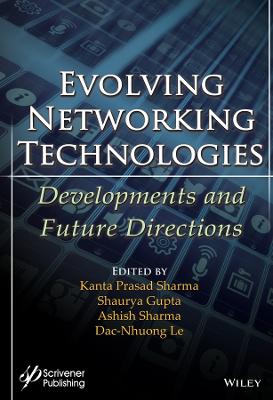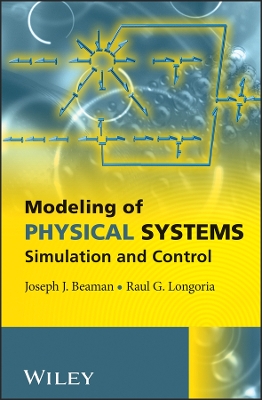Modeling and Control of Modern Electrical Energy Systems
 -15%
portes grátis
-15%
portes grátis
Modeling and Control of Modern Electrical Energy Systems
Karimi-Ghartemani, Masoud
John Wiley & Sons Inc
08/2022
400
Dura
Inglês
9781119883418
15 a 20 dias
886
Descrição não disponível.
Author Biography xv
Preface xvii
Acknowledgments xix
Acronyms xxi
Symbols xxv
Introduction xxvii
Part I Power Electronic Conversion 1
1 Power Electronics 3
1.1 Power Electronics Based Conversion 3
1.2 Power Electronic Switches 4
1.3 Types of Power Electronic Converters 6
1.4 Applications of Power Electronics in Power Engineering 6
1.5 Summary and Conclusion 8
2 Standard Power Electronic Converters 11
2.1 Standard Buck Converter 11
2.2 Standard Boost Converter 20
2.3 Standard Inverting Buck-Boost Converter 24
2.4 Standard Four-Switch Buck-Boost Converter 26
2.5 Standard Bidirectional Converter 29
2.6 Single-Phase Half-Bridge VSC 30
2.7 Full-Bridge VSC 37
2.8 Three-Phase VSC 40
2.9 Modeling of Converter Delays 43
2.10 Summary and Conclusion 44
Part II Feedback Control Systems 49
3 Frequency-Domain (Transfer Function) Approach 51
3.1 Key Concepts 51
3.2 Open-Loop Control 56
3.3 Closed-Loop (or Feedback) Control 57
3.4 Some Feedback Loop Properties 67
3.5 Summary and Conclusion 69
4 Time-Domain (State Space) Approach 73
4.1 State Space Representation and Properties 73
4.2 State Feedback 76
4.3 State Estimator 78
4.4 Optimal Control 81
4.5 Summary and Conclusion 89
Part III Distributed Energy Resources (DERs) 93
5 Direct-Current (dc) DERs 95
5.1 Introduction 95
5.2 Overview of a Solar PV Conversion System 97
5.3 Power Control via Current Feedback Loop 100
5.4 Grid Voltage Support 113
5.5 Analysis ofWeak Grid Condition 133
5.6 Load Voltage Control 135
5.7 Grid-Forming Converter Controls 142
5.8 Control Scenarios in a PV Converter 152
5.9 LCL Filter 167
5.10 Summary and Conclusion 179
6 Single-Phase Alternating-Current (ac) DERs 181
6.1 Power Balance in a dc/ac System 181
6.2 Power Control Method via Current Feedback Loop (CFL) 183
6.3 Grid-Supportive Controls 204
6.4 dc Voltage Control and Support 219
6.5 Load Voltage Control and Support 235
6.6 DERs in a Hybrid ac/dc Network 243
6.7 Summary and Conclusion 244
7 Three-Phase DERs 249
7.1 Introduction 249
7.2 Three-Phase PLL 255
7.3 Vector Current Control in Stationary Domain 262
7.4 Vector Current Control in Synchronous Reference Frame 277
7.5 Grid-Supportive Controls 297
7.6 dc Side Voltage Control and Support 307
7.7 Load Voltage Control and Support 318
7.8 Summary and Conclusion 334
Problems 335
References 338
8 Summary and Conclusion 341
Index 345
Preface xvii
Acknowledgments xix
Acronyms xxi
Symbols xxv
Introduction xxvii
Part I Power Electronic Conversion 1
1 Power Electronics 3
1.1 Power Electronics Based Conversion 3
1.2 Power Electronic Switches 4
1.3 Types of Power Electronic Converters 6
1.4 Applications of Power Electronics in Power Engineering 6
1.5 Summary and Conclusion 8
2 Standard Power Electronic Converters 11
2.1 Standard Buck Converter 11
2.2 Standard Boost Converter 20
2.3 Standard Inverting Buck-Boost Converter 24
2.4 Standard Four-Switch Buck-Boost Converter 26
2.5 Standard Bidirectional Converter 29
2.6 Single-Phase Half-Bridge VSC 30
2.7 Full-Bridge VSC 37
2.8 Three-Phase VSC 40
2.9 Modeling of Converter Delays 43
2.10 Summary and Conclusion 44
Part II Feedback Control Systems 49
3 Frequency-Domain (Transfer Function) Approach 51
3.1 Key Concepts 51
3.2 Open-Loop Control 56
3.3 Closed-Loop (or Feedback) Control 57
3.4 Some Feedback Loop Properties 67
3.5 Summary and Conclusion 69
4 Time-Domain (State Space) Approach 73
4.1 State Space Representation and Properties 73
4.2 State Feedback 76
4.3 State Estimator 78
4.4 Optimal Control 81
4.5 Summary and Conclusion 89
Part III Distributed Energy Resources (DERs) 93
5 Direct-Current (dc) DERs 95
5.1 Introduction 95
5.2 Overview of a Solar PV Conversion System 97
5.3 Power Control via Current Feedback Loop 100
5.4 Grid Voltage Support 113
5.5 Analysis ofWeak Grid Condition 133
5.6 Load Voltage Control 135
5.7 Grid-Forming Converter Controls 142
5.8 Control Scenarios in a PV Converter 152
5.9 LCL Filter 167
5.10 Summary and Conclusion 179
6 Single-Phase Alternating-Current (ac) DERs 181
6.1 Power Balance in a dc/ac System 181
6.2 Power Control Method via Current Feedback Loop (CFL) 183
6.3 Grid-Supportive Controls 204
6.4 dc Voltage Control and Support 219
6.5 Load Voltage Control and Support 235
6.6 DERs in a Hybrid ac/dc Network 243
6.7 Summary and Conclusion 244
7 Three-Phase DERs 249
7.1 Introduction 249
7.2 Three-Phase PLL 255
7.3 Vector Current Control in Stationary Domain 262
7.4 Vector Current Control in Synchronous Reference Frame 277
7.5 Grid-Supportive Controls 297
7.6 dc Side Voltage Control and Support 307
7.7 Load Voltage Control and Support 318
7.8 Summary and Conclusion 334
Problems 335
References 338
8 Summary and Conclusion 341
Index 345
Este título pertence ao(s) assunto(s) indicados(s). Para ver outros títulos clique no assunto desejado.
Modeling of Power Converters; Control of Power Converters; Integration of Renewable Resources; Distributed Energy Resources; Power Electronic Conversion; High Penetration of Renewables; Synchronization; Grid-following Converters
Author Biography xv
Preface xvii
Acknowledgments xix
Acronyms xxi
Symbols xxv
Introduction xxvii
Part I Power Electronic Conversion 1
1 Power Electronics 3
1.1 Power Electronics Based Conversion 3
1.2 Power Electronic Switches 4
1.3 Types of Power Electronic Converters 6
1.4 Applications of Power Electronics in Power Engineering 6
1.5 Summary and Conclusion 8
2 Standard Power Electronic Converters 11
2.1 Standard Buck Converter 11
2.2 Standard Boost Converter 20
2.3 Standard Inverting Buck-Boost Converter 24
2.4 Standard Four-Switch Buck-Boost Converter 26
2.5 Standard Bidirectional Converter 29
2.6 Single-Phase Half-Bridge VSC 30
2.7 Full-Bridge VSC 37
2.8 Three-Phase VSC 40
2.9 Modeling of Converter Delays 43
2.10 Summary and Conclusion 44
Part II Feedback Control Systems 49
3 Frequency-Domain (Transfer Function) Approach 51
3.1 Key Concepts 51
3.2 Open-Loop Control 56
3.3 Closed-Loop (or Feedback) Control 57
3.4 Some Feedback Loop Properties 67
3.5 Summary and Conclusion 69
4 Time-Domain (State Space) Approach 73
4.1 State Space Representation and Properties 73
4.2 State Feedback 76
4.3 State Estimator 78
4.4 Optimal Control 81
4.5 Summary and Conclusion 89
Part III Distributed Energy Resources (DERs) 93
5 Direct-Current (dc) DERs 95
5.1 Introduction 95
5.2 Overview of a Solar PV Conversion System 97
5.3 Power Control via Current Feedback Loop 100
5.4 Grid Voltage Support 113
5.5 Analysis ofWeak Grid Condition 133
5.6 Load Voltage Control 135
5.7 Grid-Forming Converter Controls 142
5.8 Control Scenarios in a PV Converter 152
5.9 LCL Filter 167
5.10 Summary and Conclusion 179
6 Single-Phase Alternating-Current (ac) DERs 181
6.1 Power Balance in a dc/ac System 181
6.2 Power Control Method via Current Feedback Loop (CFL) 183
6.3 Grid-Supportive Controls 204
6.4 dc Voltage Control and Support 219
6.5 Load Voltage Control and Support 235
6.6 DERs in a Hybrid ac/dc Network 243
6.7 Summary and Conclusion 244
7 Three-Phase DERs 249
7.1 Introduction 249
7.2 Three-Phase PLL 255
7.3 Vector Current Control in Stationary Domain 262
7.4 Vector Current Control in Synchronous Reference Frame 277
7.5 Grid-Supportive Controls 297
7.6 dc Side Voltage Control and Support 307
7.7 Load Voltage Control and Support 318
7.8 Summary and Conclusion 334
Problems 335
References 338
8 Summary and Conclusion 341
Index 345
Preface xvii
Acknowledgments xix
Acronyms xxi
Symbols xxv
Introduction xxvii
Part I Power Electronic Conversion 1
1 Power Electronics 3
1.1 Power Electronics Based Conversion 3
1.2 Power Electronic Switches 4
1.3 Types of Power Electronic Converters 6
1.4 Applications of Power Electronics in Power Engineering 6
1.5 Summary and Conclusion 8
2 Standard Power Electronic Converters 11
2.1 Standard Buck Converter 11
2.2 Standard Boost Converter 20
2.3 Standard Inverting Buck-Boost Converter 24
2.4 Standard Four-Switch Buck-Boost Converter 26
2.5 Standard Bidirectional Converter 29
2.6 Single-Phase Half-Bridge VSC 30
2.7 Full-Bridge VSC 37
2.8 Three-Phase VSC 40
2.9 Modeling of Converter Delays 43
2.10 Summary and Conclusion 44
Part II Feedback Control Systems 49
3 Frequency-Domain (Transfer Function) Approach 51
3.1 Key Concepts 51
3.2 Open-Loop Control 56
3.3 Closed-Loop (or Feedback) Control 57
3.4 Some Feedback Loop Properties 67
3.5 Summary and Conclusion 69
4 Time-Domain (State Space) Approach 73
4.1 State Space Representation and Properties 73
4.2 State Feedback 76
4.3 State Estimator 78
4.4 Optimal Control 81
4.5 Summary and Conclusion 89
Part III Distributed Energy Resources (DERs) 93
5 Direct-Current (dc) DERs 95
5.1 Introduction 95
5.2 Overview of a Solar PV Conversion System 97
5.3 Power Control via Current Feedback Loop 100
5.4 Grid Voltage Support 113
5.5 Analysis ofWeak Grid Condition 133
5.6 Load Voltage Control 135
5.7 Grid-Forming Converter Controls 142
5.8 Control Scenarios in a PV Converter 152
5.9 LCL Filter 167
5.10 Summary and Conclusion 179
6 Single-Phase Alternating-Current (ac) DERs 181
6.1 Power Balance in a dc/ac System 181
6.2 Power Control Method via Current Feedback Loop (CFL) 183
6.3 Grid-Supportive Controls 204
6.4 dc Voltage Control and Support 219
6.5 Load Voltage Control and Support 235
6.6 DERs in a Hybrid ac/dc Network 243
6.7 Summary and Conclusion 244
7 Three-Phase DERs 249
7.1 Introduction 249
7.2 Three-Phase PLL 255
7.3 Vector Current Control in Stationary Domain 262
7.4 Vector Current Control in Synchronous Reference Frame 277
7.5 Grid-Supportive Controls 297
7.6 dc Side Voltage Control and Support 307
7.7 Load Voltage Control and Support 318
7.8 Summary and Conclusion 334
Problems 335
References 338
8 Summary and Conclusion 341
Index 345
Este título pertence ao(s) assunto(s) indicados(s). Para ver outros títulos clique no assunto desejado.







